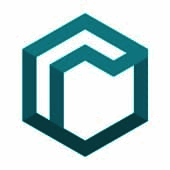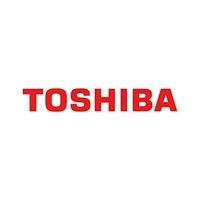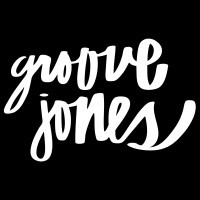Description
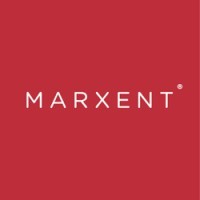
Marxent Labs
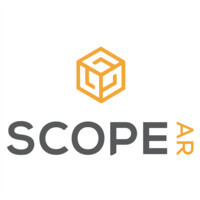
Scope AR
Comprehensive Overview: Marxent Labs vs Scope AR
Marxent Labs and Scope AR are both notable companies in the field of augmented reality (AR), each offering unique solutions and targeting specific markets. Here's an overview of their primary functions, target markets, market shares, user bases, and key differentiating factors:
Marxent Labs
a) Primary Functions and Target Markets:
- Primary Functions: Marxent Labs specializes in developing augmented reality and virtual reality (VR) solutions predominantly for the retail and e-commerce sectors. Their key products include 3D Cloud™ and the VisualCommerce™ platform, which enable retailers to provide a 3D visualization experience for products like furniture and kitchen appliances. These tools help in space planning and product customization, allowing customers to visualize products in their actual environment through AR.
- Target Markets: Marxent primarily targets large retailers, manufacturers, and home improvement companies. Clients include significant industry players such as Lowe’s, Macy’s, and Ashley Furniture.
b) Market Share and User Base:
- Market Share: Marxent Labs holds a prominent position in the market for AR solutions in retail. They are amongst the few specialized companies that offer scalable AR and 3D visualization solutions at an enterprise level.
- User Base: Their user base consists mainly of large retailers and their customers who engage with Marxent’s AR solutions via retail apps or in-store experiences. Precise numbers on user base are typically proprietary but can include millions of end customers through their retail partners.
c) Key Differentiating Factors:
- Enterprise Focus: Marxent’s solutions are tailored for large-scale deployment, making them ideal for businesses with broad product catalogs and complex visualization needs.
- Specialization in 3D Cloud Solutions: Their platform is distinctive for its 3D Cloud capabilities, offering robust tools for managing, deploying, and analyzing 3D assets across various platforms.
Scope AR
a) Primary Functions and Target Markets:
- Primary Functions: Scope AR offers an AR platform focused on enterprise applications and workforce productivity, featuring products like WorkLink, which provides real-time remote assistance, training, and knowledge sharing. This platform allows workers to follow step-by-step AR instructions and connect with experts for real-time support.
- Target Markets: Their target markets include aerospace, manufacturing, oil and gas, and other industries requiring complex maintenance, repair, and training solutions. Clients often include companies like Lockheed Martin and Unilever.
b) Market Share and User Base:
- Market Share: Scope AR is a leading player in the enterprise AR sector, particularly within industrial applications. They are recognized for their pioneering work in AR work instructions and remote assistance.
- User Base: The user base consists of industrial and front-line workers who utilize Scope AR’s solutions for improved on-the-job performance and safety. Similar to Marxent, specific user numbers are proprietary but are spread across many industries worldwide.
c) Key Differentiating Factors:
- Focus on Industrial Applications: Unlike Marxent, Scope AR is deeply embedded in industrial sectors, providing tools specifically designed for enhancing workforce efficiency and safety through AR.
- Real-time Remote Assistance: Their WorkLink product is especially valued for its ability to offer live support and guidance, facilitating real-time problem-solving and collaboration across geographies.
Comparative Summary:
Market Application: Marxent targets retail while Scope AR focuses on industrial sectors. Functionality Emphasis: Marxent provides visualization tools for consumer-facing applications, whereas Scope AR offers tools designed for enhancing workforce productivity. Deployment Scale: Both cater to large enterprises, but their platforms serve fundamentally different end-user experiences and industry requirements. Accordingly, each holds distinct aspects of the AR market share.
Both Marxent Labs and Scope AR leverage AR technology to solve distinct challenges within their respective domains. Their continued innovation ensures they remain influential in shaping the direction and capabilities of AR applications across industries.
Contact Info

Year founded :
Not Available
Not Available
Not Available
Not Available
Not Available

Year founded :
2010
+1 855-207-2673
Not Available
United States
http://www.linkedin.com/company/scopear
Feature Similarity Breakdown: Marxent Labs, Scope AR
As of my last update, Marxent Labs and Scope AR are both companies operating in the space of augmented reality (AR) and virtual reality (VR), but they focus on slightly different applications within those realms. Here's a breakdown of their feature similarities and differences:
a) Core Features in Common:
-
Augmented Reality Solutions: Both companies offer robust AR applications tailored for specific industries. Marxent Labs commonly focuses on retail and furniture, providing AR solutions for 3D product visualization. Scope AR, on the other hand, excels in offering enterprise-level augmented reality solutions, often tailored for training, remote assistance, and collaboration.
-
3D Content Creation and Visualization: Both platforms provide tools to create and visualize 3D content, enabling users to interact with digital assets in a real-world context. This is crucial for industries like furniture retail and industrial maintenance, where realistic 3D rendering is essential.
-
Cross-Platform Compatibility: Both Marxent Labs and Scope AR design their applications to work across a range of devices, including smartphones, tablets, and AR glasses, ensuring flexibility and accessibility for users.
-
Real-Time Interaction and Feedback: They offer real-time interaction capabilities, allowing users to manipulate AR content and receive instant feedback on changes or decisions made within the platform.
b) User Interface Comparison:
-
Marxent Labs:
- Typically has a user interface designed to be customer-friendly, focusing on ease of use for retail consumers. The design often highlights rich visual content, intuitive navigation, and seamless integration with e-commerce platforms.
- Interfaces are optimized for an engaging retail experience, often designed to minimize friction in the buying process through clear visualizations and simple UI elements.
-
Scope AR:
- The user interface is tailored more toward enterprise use cases and might have slightly steeper learning curves, given its complex functionalities. It's designed for technical users with features suited for industries like aerospace, manufacturing, and field service.
- Interfaces focus on functional design, providing users with comprehensive tools to facilitate training and remote support, which might include overlay instructions, guides, and real-time collaboration features.
c) Unique Features:
-
Marxent Labs:
- 3D Cloud Platform: This feature allows retailers to manage, share, and analyze their 3D content seamlessly. It also supports a streamlined process for deploying 3D assets across various sales channels.
- VisualCommerce™: A unique offering for retailers allowing customers to visualize multiple products in a room-accurate environment before making a purchase decision, thereby enhancing the e-commerce shopping experience.
-
Scope AR:
- Remote AR Assistance: Scope AR is well-known for its remote assistance capabilities, like its WorkLink platform, which enables real-time AR assistance, allowing experts to guide users remotely in solving complex issues.
- Step-by-Step Instructions: Particularly emphasized in intricate industrial environments, Scope AR provides step-by-step augmented reality instructions to assist users in training or performing complex tasks.
While both companies explore the capabilities of AR, their applications reflect the distinct demands of their target industries, with Marxent focusing mostly on retail solutions and Scope AR on enterprise training and remote assistance. This specialization results in unique attributes tailored to meet specific customer needs within those fields.
Features

Not Available

Not Available
Best Fit Use Cases: Marxent Labs, Scope AR
Marxent Labs and Scope AR both specialize in augmented reality (AR) solutions, but they cater to different segments of the market with distinct use cases.
a) For what types of businesses or projects is Marxent Labs the best choice?
Marxent Labs:
Marxent Labs is particularly well-suited for businesses in the retail and furniture industries that are looking to enhance their sales and customer engagement through immersive technologies. Their primary offering, the 3D Cloud™ and VisualCommerce™, focuses on creating 3D product configurations and AR visualizations.
Ideal Use Cases:
-
Retail and E-commerce: Companies in home furnishings, DIY, and building products can benefit significantly from Marxent’s solutions. The ability to offer customers 3D product catalogs and AR visualization tools enhances online shopping experiences and aids in in-store engagement.
-
Home Improvement and Furniture: Businesses that sell complex, large, or customizable products (like kitchen, bath, and furniture) can use Marxent’s technology to allow customers to visualize how products will look within their personal spaces.
-
Custom Product Configuration: Companies that offer customizable products would find Marxent's platform ideal for helping consumers build and visualize their personalized configurations in real-time.
-
Sales Enablement: Sales teams in these sectors can utilize AR and 3D visualization to better convey product options and customization features to clients, potentially increasing conversion rates and customer satisfaction.
b) In what scenarios would Scope AR be the preferred option?
Scope AR:
Scope AR is best chosen by industries that require robust remote assistance, skilled trades, and focus on operational efficiency through AR technology. They excel in providing AR solutions for remote support and guidance, making them suitable for sectors that involve hands-on work.
Ideal Use Cases:
-
Field Service Management: Companies that have geographically dispersed teams needing remote support to perform complex installations, repairs, or maintenance can benefit from Scope AR’s solutions.
-
Manufacturing and Industrial Maintenance: Businesses can leverage AR for real-time, on-site expert guidance, reducing downtime and improving the efficiency of maintenance and repair operations.
-
Training and Onboarding: Industries that require training of technicians or workers on complex machinery can use Scope AR’s tools for immersive and interactive training experiences.
-
Telecommunications and Utilities: Companies in these sectors often require assistance in remote locations where Scope AR’s solution can provide remote visual guidance and troubleshooting.
d) How do these products cater to different industry verticals or company sizes?
Marxent Labs:
-
Industry Verticals: Primarily targets retail, home furnishings, and construction-related sectors. By focusing on the visualization and configuration needs of these industries, Marxent effectively addresses the specific challenges of selling complex, customizable products.
-
Company Sizes: Marxent can cater to large retailers with extensive product lines looking for comprehensive custom visualization platforms as well as mid-sized enterprises aiming to improve their sales processes through digital innovation.
Scope AR:
-
Industry Verticals: Engages industries like manufacturing, aerospace, telecommunications, and healthcare. The emphasis is on providing solutions that enhance operational efficiency and offer seamless remote assistance and training.
-
Company Sizes: While Scope AR is scalable, it is particularly beneficial for larger organizations that have a significant number of field technicians or require extensive remote collaboration. However, it also provides value to smaller companies where reducing downtime and increasing the proficiency of workers are critical objectives.
In summary, Marxent Labs is best for businesses needing customer engagement through visual product configuration, particularly in retail and home furnishing. In contrast, Scope AR is ideal for industries requiring remote assistance and operational efficiency, such as manufacturing and field services. Each product is tailored to different operational needs and company scales, ensuring specialized solutions for their respective markets.
Pricing

Pricing Not Available

Pricing Not Available
Metrics History
Metrics History
Comparing teamSize across companies
Conclusion & Final Verdict: Marxent Labs vs Scope AR
When evaluating Marxent Labs and Scope AR for augmented reality (AR) solutions, the choice largely depends on the specific needs and context of the user, as each product has its unique strengths and weaknesses.
Conclusion & Final Verdict:
Product Comparison Summary:
-
Marxent Labs is known for its 3D Cloud platform, focusing primarily on retail and enterprise clients needing complex 3D visualization and AR spaces. Its strengths lie in high-quality visual fidelity and extensive integration capabilities with existing retail and e-commerce systems.
-
Scope AR offers an enterprise-class AR platform geared more towards real-time collaboration and remote assistance. Its strength lies in facilitating operational efficiency and reducing downtime in sectors such as manufacturing and field services.
a) Best Overall Value:
Best Overall Value: If your primary focus is e-commerce and enhancing customer engagement through detailed and immersive 3D visualization, Marxent Labs offers the best value. However, if your goal is improving operational efficiencies via real-time AR collaboration, training, or remote assistance, Scope AR might present a better overall value.
b) Pros and Cons:
Marxent Labs:
Pros:
- High-quality 3D visualization tailored for retail applications.
- Strong integration capabilities with existing systems.
- Ideal for detailed product visualization and virtual showrooms.
Cons:
- May not be as beneficial for applications outside of retail and e-commerce.
- Could impose higher initial costs for custom integrations.
Scope AR:
Pros:
- Real-time collaboration capabilities enhance remote support and training.
- Suitable for industrial applications, offering robust operational efficiency.
- Reduces training time and improves support response rates.
Cons:
- Visual quality may not match the bespoke 3D visualizations offered by Marxent.
- Primarily focused on industries requiring operational support, less emphasis on consumer experiences.
c) Recommendations for Users:
-
Assess Your Industry Needs: Identify whether your needs align more with retail (where visualization impacts sales) or industrial operations (where real-time support and efficiency are key).
-
Consider Integration Requirements: Evaluate your existing systems and determine how either solution will integrate. Marxent Labs might be better if extensive e-commerce integration is needed.
-
Scale and Budget: Consider the scale of deployment and budget constraints. Marxent might demand a higher upfront investment for integration, whereas Scope AR could offer quicker ROI by reducing operational costs.
-
End-user Experience: Determine if the end-user experience matters more (focus on Marxent for retail) or if internal operational efficiency is prioritized (lean towards Scope AR for enterprise applications).
By considering these factors, users can make informed decisions surrounding their AR platform investments, ensuring alignment with strategic objectives and operational goals.
Add to compare
Add similar companies
